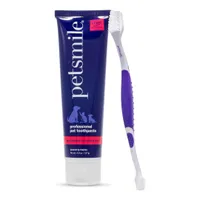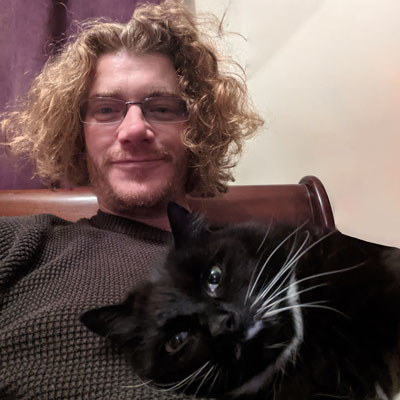Is my cat sick? Vet reveals 10 signs it’s time to pay them a visit
Questioning, ‘Is my cat sick?’ These are the signs to look out for
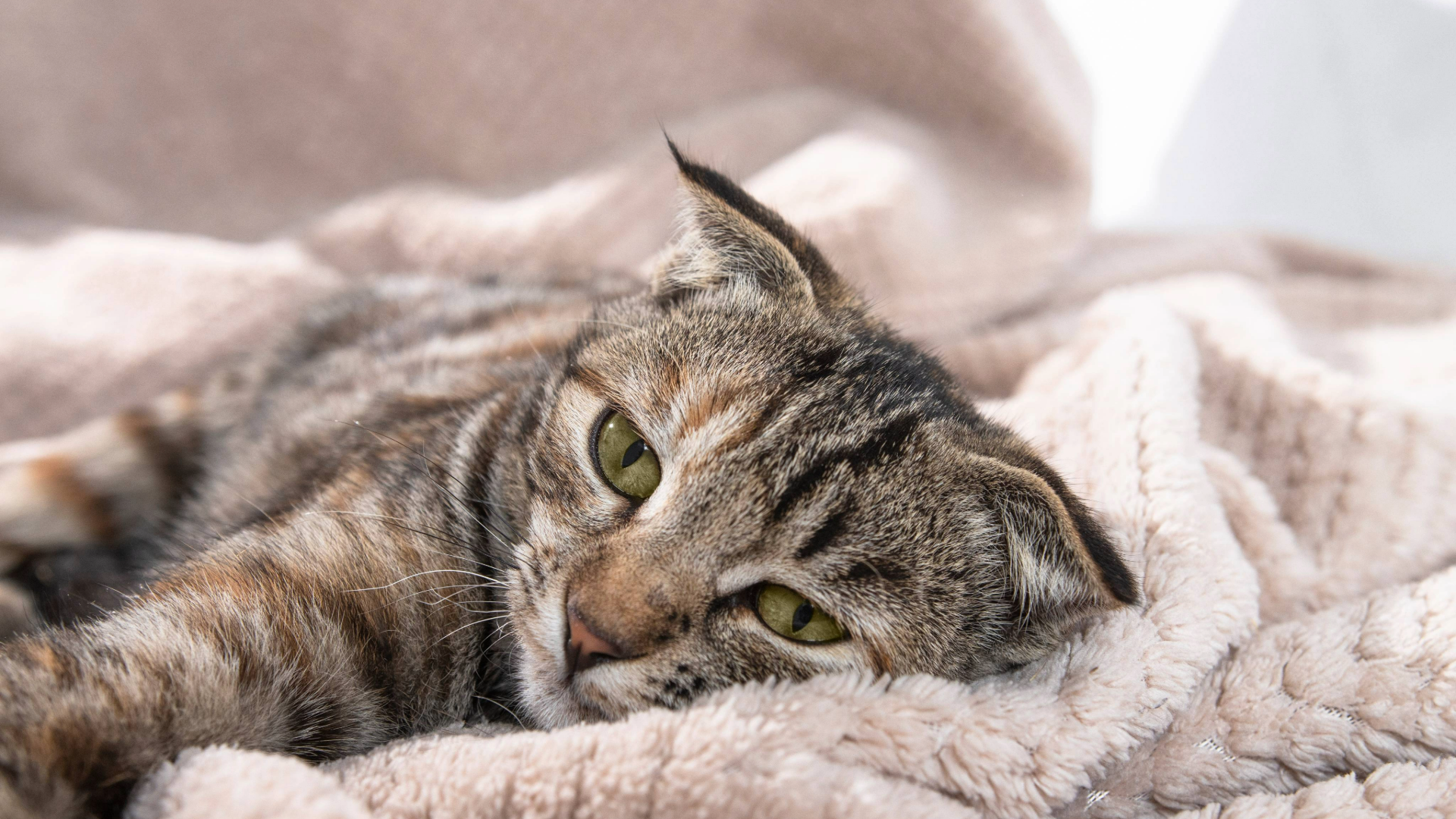
If your feline hasn’t been themselves lately, you might find yourself asking, “Is my cat sick?” Since cats are masters of disguise and like to hide their symptoms, it can be tricky to work out the answer – but there are a few signs to look out for.
Whether your cat has stopped eating or become more greedy, a change in appetite is one of the biggest clues that your cat may be feeling unwell. Other common symptoms include a shift in food preferences or increased thirst, so it’s worth keeping a close eye on these changes.
To help you work out whether your cat is sick, we’ve asked Dr Joanna Woodnutt to explain the symptoms to watch for. She’s an expert vet with nearly a decade of experience and is here to guide you through.
Is my cat sick? The signs
1. Vomiting
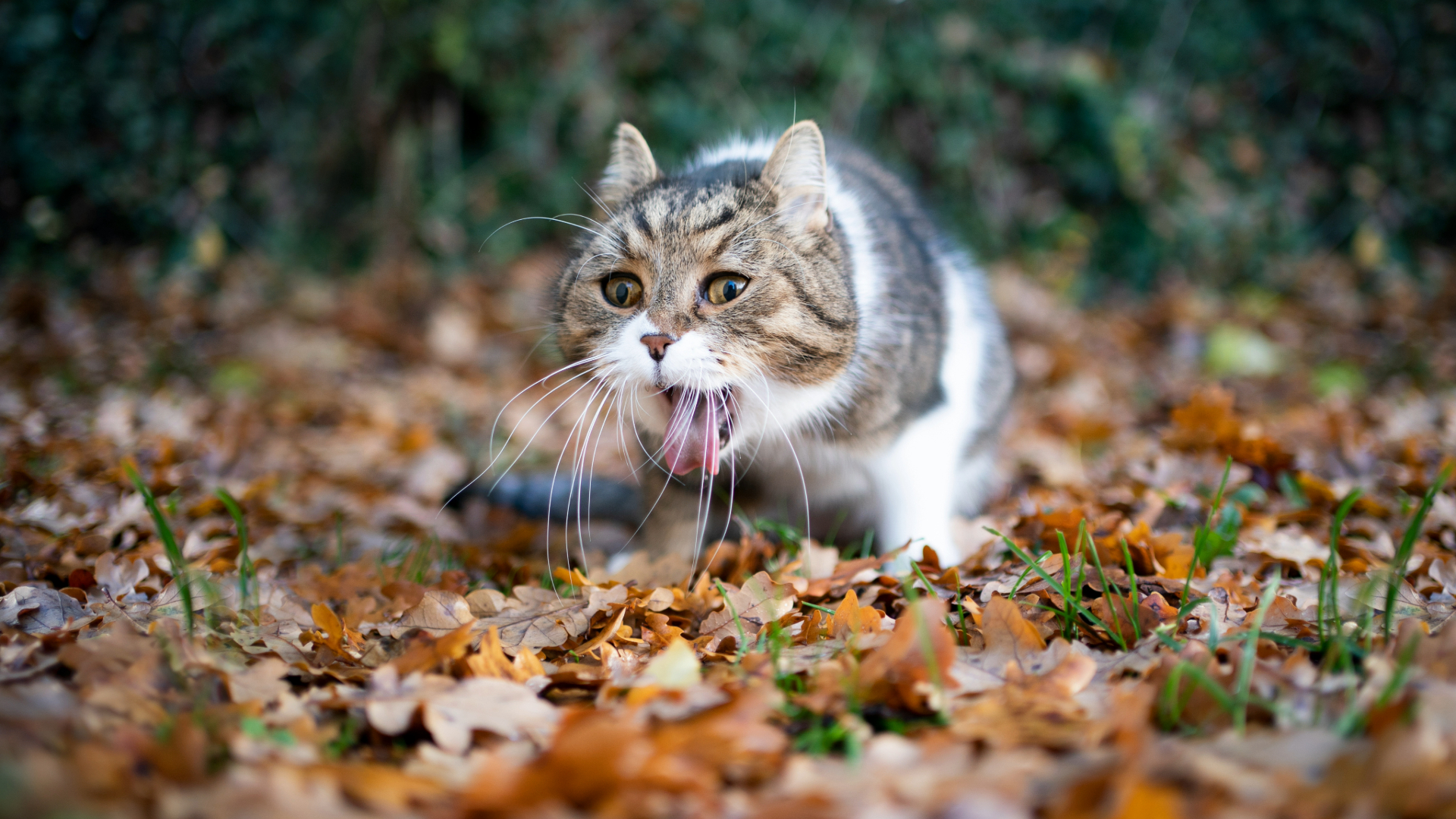
My cat keeps being sick – what does it mean?
It’s likely you have seen (or more likely found evidence of!) your cat vomiting now and again. Although it’s not ideal, infrequent vomiting is not uncommon and can be due to something simple like them wolfing down their food too quickly or trying to bring up a hairball – a relatively natural process if infrequent (see more below).
Vomiting is only a concern if your cat starts doing it in a way that it hasn’t before, for example, more often than once or twice a month, repeatedly straight after eating, or if they keep vomiting constantly.
Frequent vomiting is a sign of potential problems such as allergies, an inflamed or blocked intestine, stomach ulcers, pancreatitis or inflammatory bowel disease, and means it’s time to get them to the vet to be checked out. Also watch out for blood or bile in their vomit, as this is a likely sign that something is up.
Get the best advice, tips and top tech for your beloved Pets
2. Unkempt coat
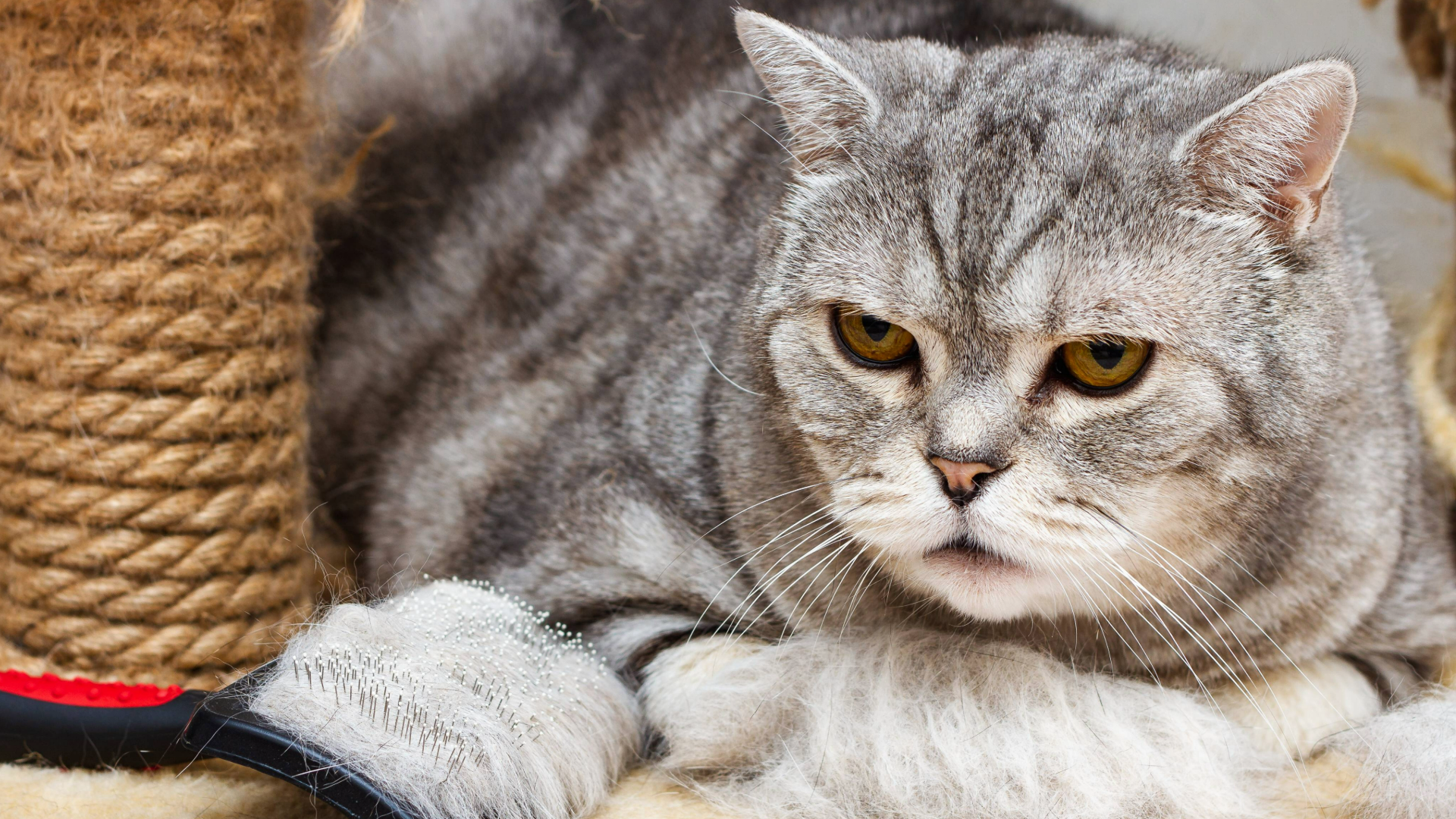
Is your cat’s coat dull, oily, or matted?
Cats are usually fastidious creatures, and if they aren’t taking care of their fur this may be a sign that something is wrong. A tangled and dirty coat usually means they are too tired or uncomfortable to tend it.
For example, arthritic or injured cats may lack the mobility to groom themselves, or an internal issue may mean they choose to avoid positions which cause them pain, meaning cleaning themselves becomes less of a priority. It can be a sign of dental disease or oral infections too (as it hurts to groom to their normal high standards).
If your cat has stopped grooming itself, this is a definite sign that something may be wrong with your kitty, and you need to seek professional advice.
3. Hot spots on cats
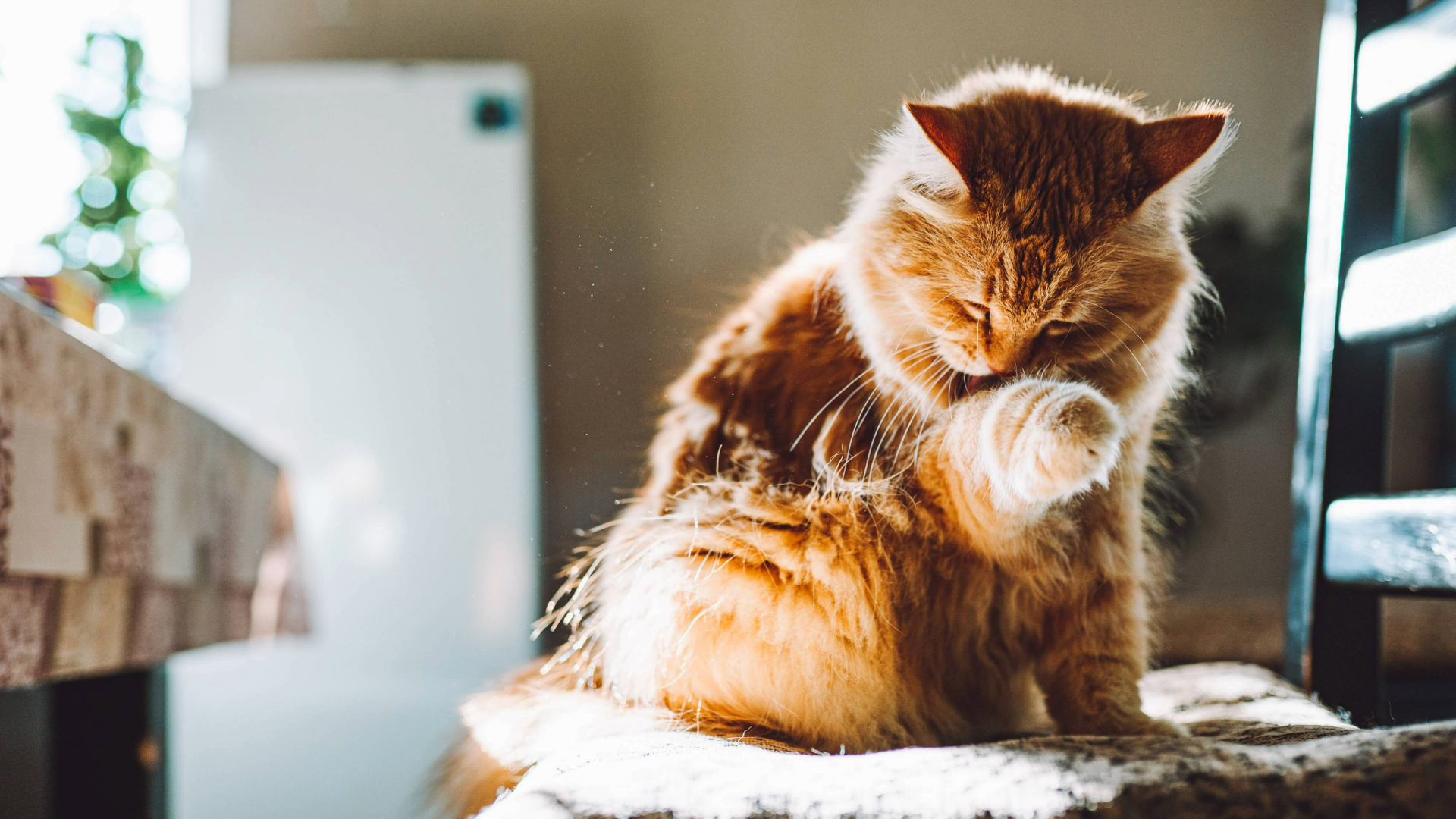
Is your cat excessively licking or biting at a spot on their body?
Have you noticed your cat is constantly rubbing, licking, or biting a certain area? If so, then it may be a sign your cat is developing a hot spot (also referred to as acute moist dermatitis).
It starts life as a tender area on the body, but as your cat concentrates on the area, it will become a round lesion – red, inflamed, and moist. This lets bacteria infect it, and in turn it develops into a painful sore.
It’s time to book a visit to the vet if you notice something like these. Hot spots can also be a sign that your cat has a weakened immune system, perhaps an allergy (to food or in reaction to an insect bite), an injury they have picked up, or in some cases, that they are developing arthritis, or the sign of a ringworm infection.
4. Patchy fur
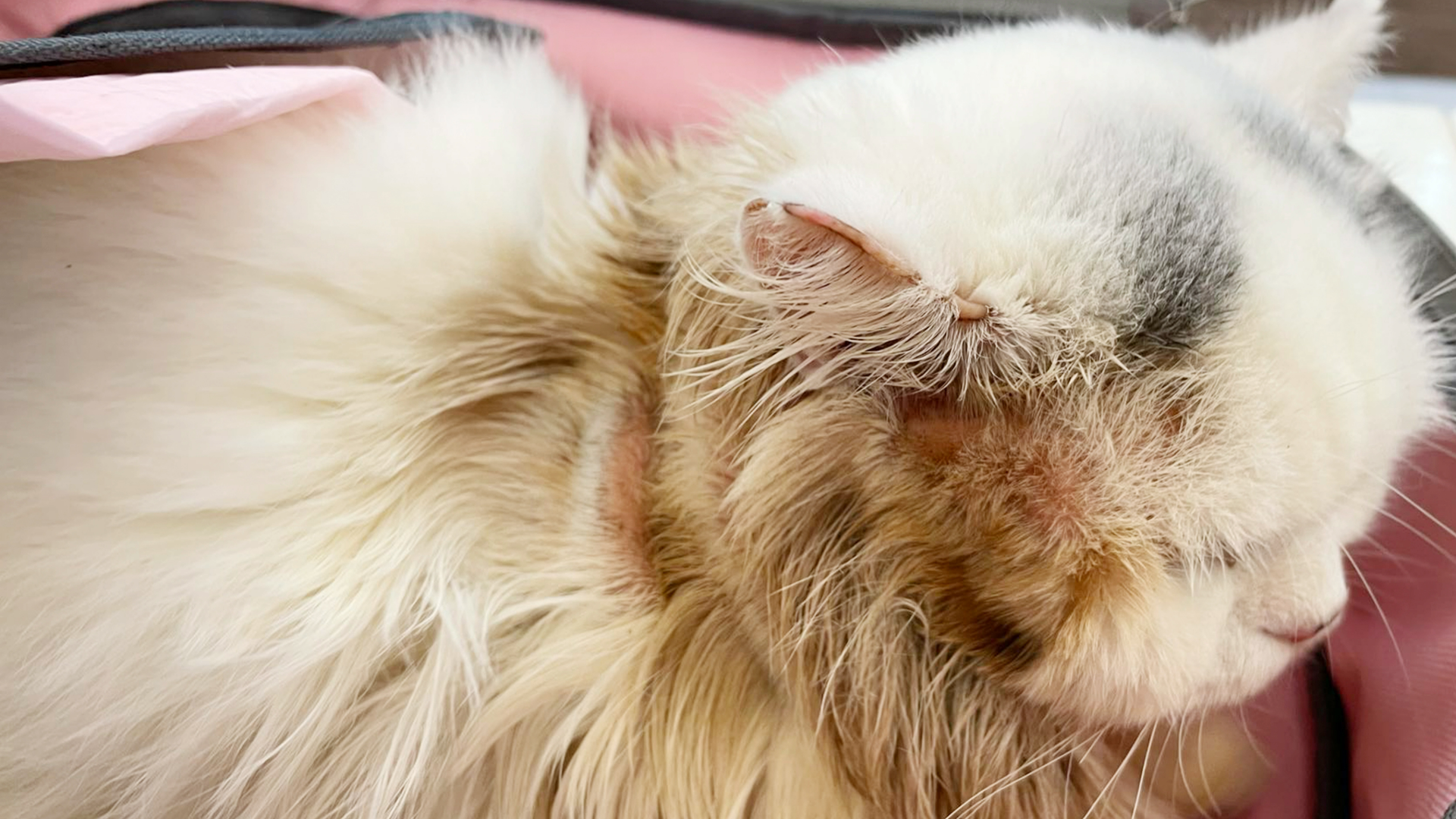
Is your cat losing hair in certain areas?
Most common in feral cats, the most common cause of patchy fur is a diet lacking in an essential component. Patchy coats are a recurring sign of malnutrition, so if your cat starts losing its fur, make sure that you are providing them with a healthy diet that is rich in protein and fish oils (a source of omega-3 fatty acids).
If you are confident it isn’t diet, then another cause of bald patches is due to a reaction to the bite of a flea, mite or other parasite. Particularly common on your cat’s tail or lower back, it’s caused by your moggy overgrooming due to an irritation caused by an allergic reaction to the saliva of the flea or other insect.
It can also be a sign of other issues like a hormone imbalance, fungal infections like ringworm, or anxiety, so if providing them with a better diet combined with a parasite treatment doesn’t fix it, then it’s time to look for medical advice.
5. Changes in urination habits
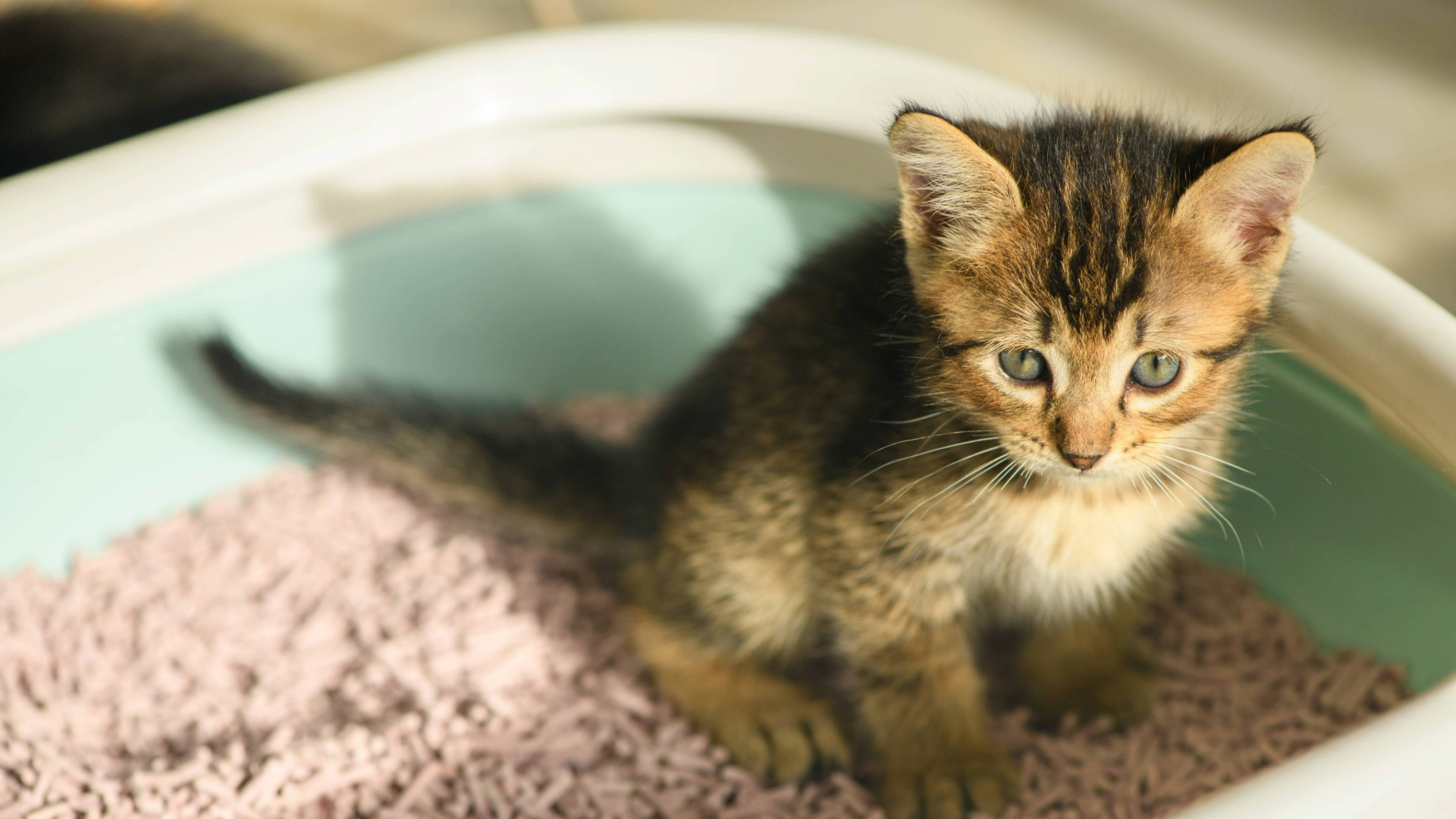
Is your cat urinating more, less or not at all?
If your cat suddenly starts urinating a lot more than usual, alarm bells should be ringing, especially if they keep leaving little puddles around the house. This is a sign they are under the weather or are unable to control their bladder as much as usual.
As Dr. Joanna Woodnutt tells us, “Your cat’s urine is an important marker of health. Cystitis and kidney disease are common in cats, so allowing your cat a litter tray so you can monitor their wee is ideal.
“If you notice your cat struggling to toilet, or that their urine quantity changes or it changes color, it’s time to book a visit with the vet. If your cat can’t pass urine at all, this is an emergency so you should call the nearest open vet as soon as you notice this symptom.”
6. Excessive thirst
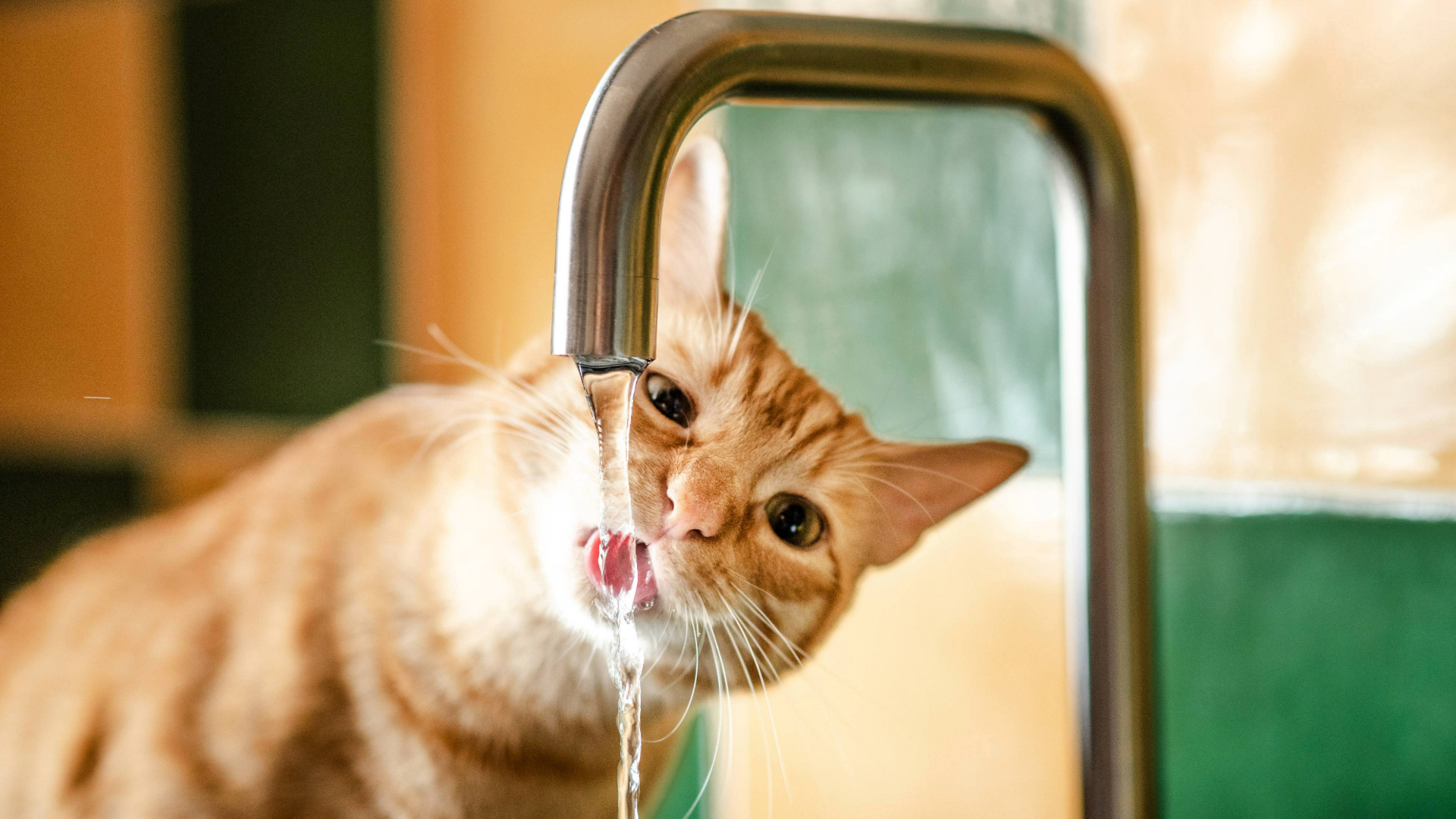
Is you cat drinking more than usual?
A sudden change in drinking habits is one of the most common worries that vets hear from cat owners. This can probably be put aside if their more frequent trips to the water bowl happen during a bout of hot weather, but outside of this, it may be related to anxiety or an underlying metabolic disease.
It is likely they need to drink more because they are urinating more, an indicator of the problems mentioned above, or diabetes, hyperthyroidism, or a urinary tract infection.
7. Hairballs
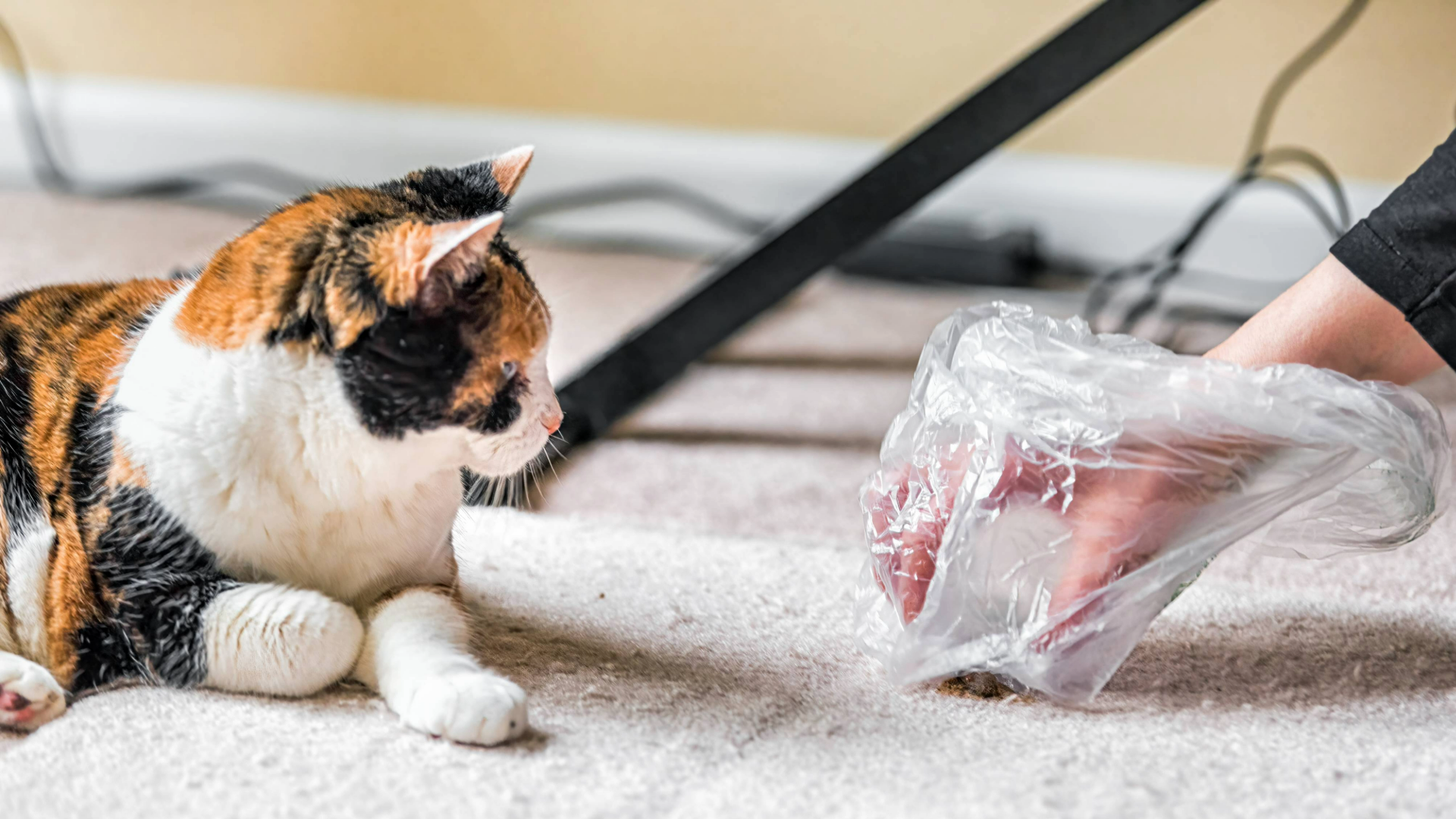
Is your cat coughing hairballs up more or having trouble expelling them?
Every cat coughs up the occasional hairball caused by them grooming their fur and ingesting loose hairs. However, if you notice your furry friend coughing them up more frequently, or repeatedly hacking, gagging, and retching without producing one, that can be a sign of illness.
Sometimes excess hairballs are caused by overgrooming due to a skin allergy, injury, flea infestation or allergy, or it may be a sign of problems with the digestive tract such as inflammatory bowel disease or stomach or intestinal cancer.
Obviously, longer haired cat breeds will produce more hairballs than short-haired cats, especially when the weather gets warmer and they start shedding. Also, cats produce more hairballs than kittens as they get better at grooming themselves, so this may just be a sign that they are growing up. If you are seeing more than one a week, or they seem to have a lot of trouble coughing them up, this can be an indicator that your cat is ill.
If you aren’t sure there is a real increase in hairballs from your cat, but want to make sure there isn’t a problem, you can take away the usual cause by grooming your cat’s hair to get rid of excess fur twice a day and see if that solves it. If it doesn’t then it’s time to go to the vet.
8. Bad breath
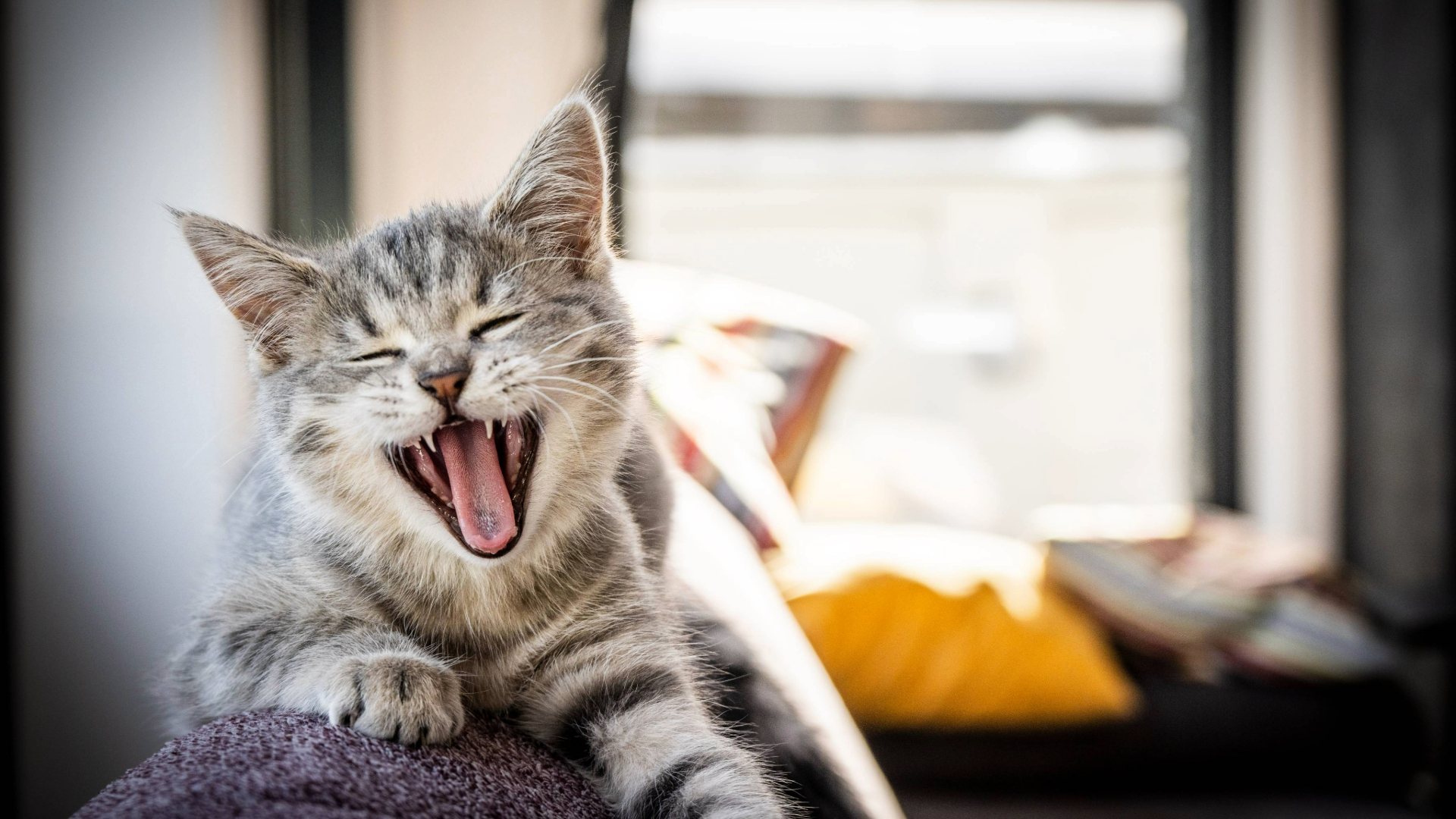
Is your cat’s breath particularly foul?
The smell of your cat’s breath is rarely that pleasant, but if it is smelling severely bad this is a common sign that something is wrong.
It’s usually a sign of dental problems like gingivitis or tooth decay, which if left untreated can lead to an infection which could cause heart issues. To prevent this, it’s important to regularly get your cat’s teeth cleaned, and it’s a great idea to learn how to brush your kitty’s teeth yourself.
If it persists after a good teeth clean then it’s time to seek advice – it can be a sign of various ailments including kidney disease (where there breath smells like urine), diabetes (smells sweet), liver disease (smells foul) or even oral trauma – such as that caused by them biting through an electric cable.
Petsmile Professional Pet Tooth Brushing Kit | Amazon
This brushing kit will keep your cat’s teeth sparkling clean while helping to prevent problems like plaque, tartar, and gingivitis. It includes a toothbrush and toothpaste, both recommended by the Veterinary Oral Health Council. The toothpaste comes in a range of tasty flavors – like rotisserie chicken and cheese – to encourage your cat to use it.
9. Weight loss
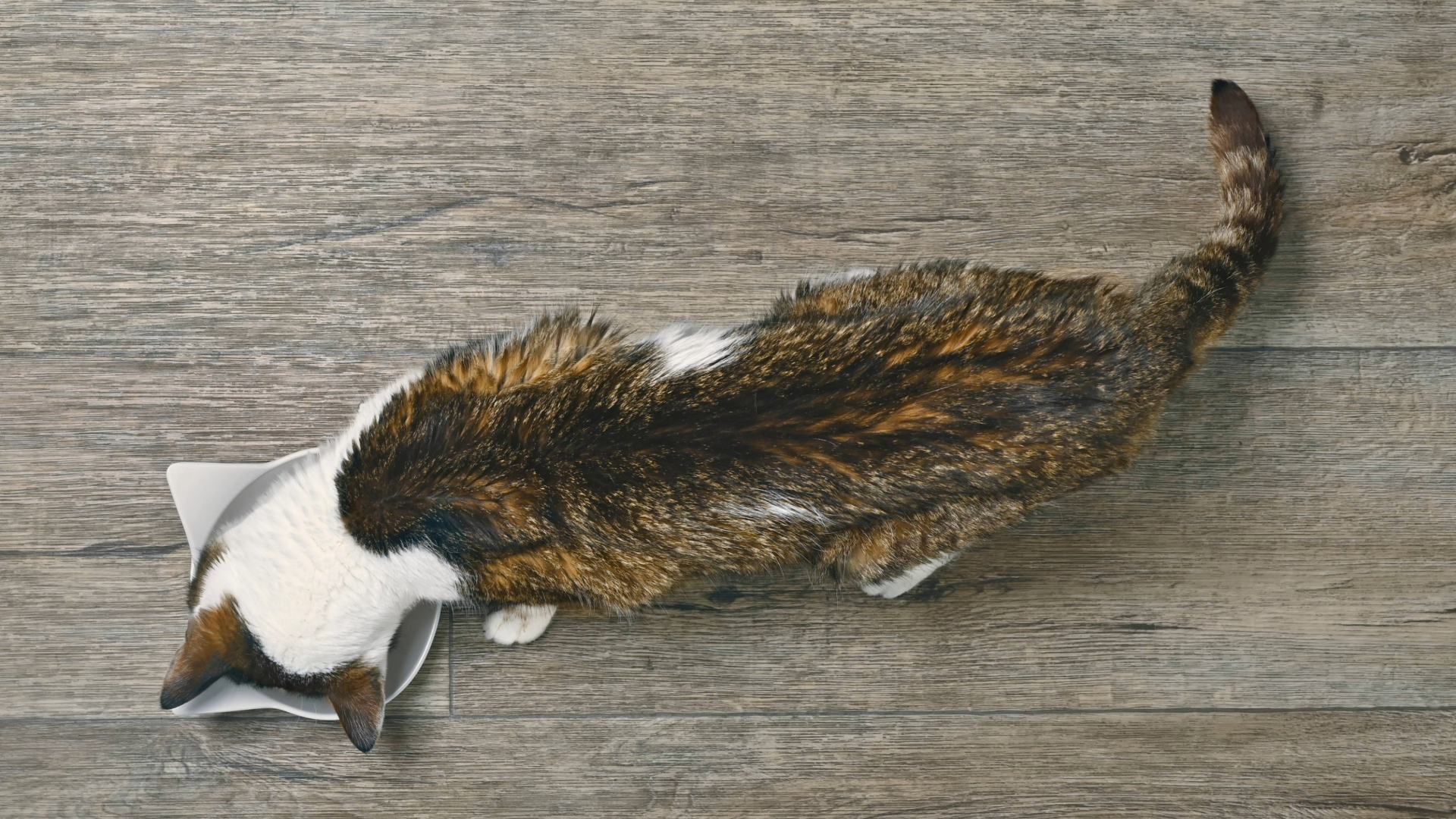
Has your cat suddenly got skinny?
As Dr. Joanna Woodnutt tells us, “Weight loss is often easy to miss at first, but keeping a close eye on your cat’s weight and body shape, especially as they age, is the best way to spot this symptom early.”
Despite what you may have been told, cats do not naturally lose weight as they get older and any sudden drops in weight can indicate a variety of health issues.
These include everything from common ones like dental problems, intestinal parasites or anxiety, all the way through to diabetes, cancer or organ failure. If you notice a sudden unintentional weight loss in your kitty it’s worth booking a visit to the vet to identify the problem.
10. Obesity
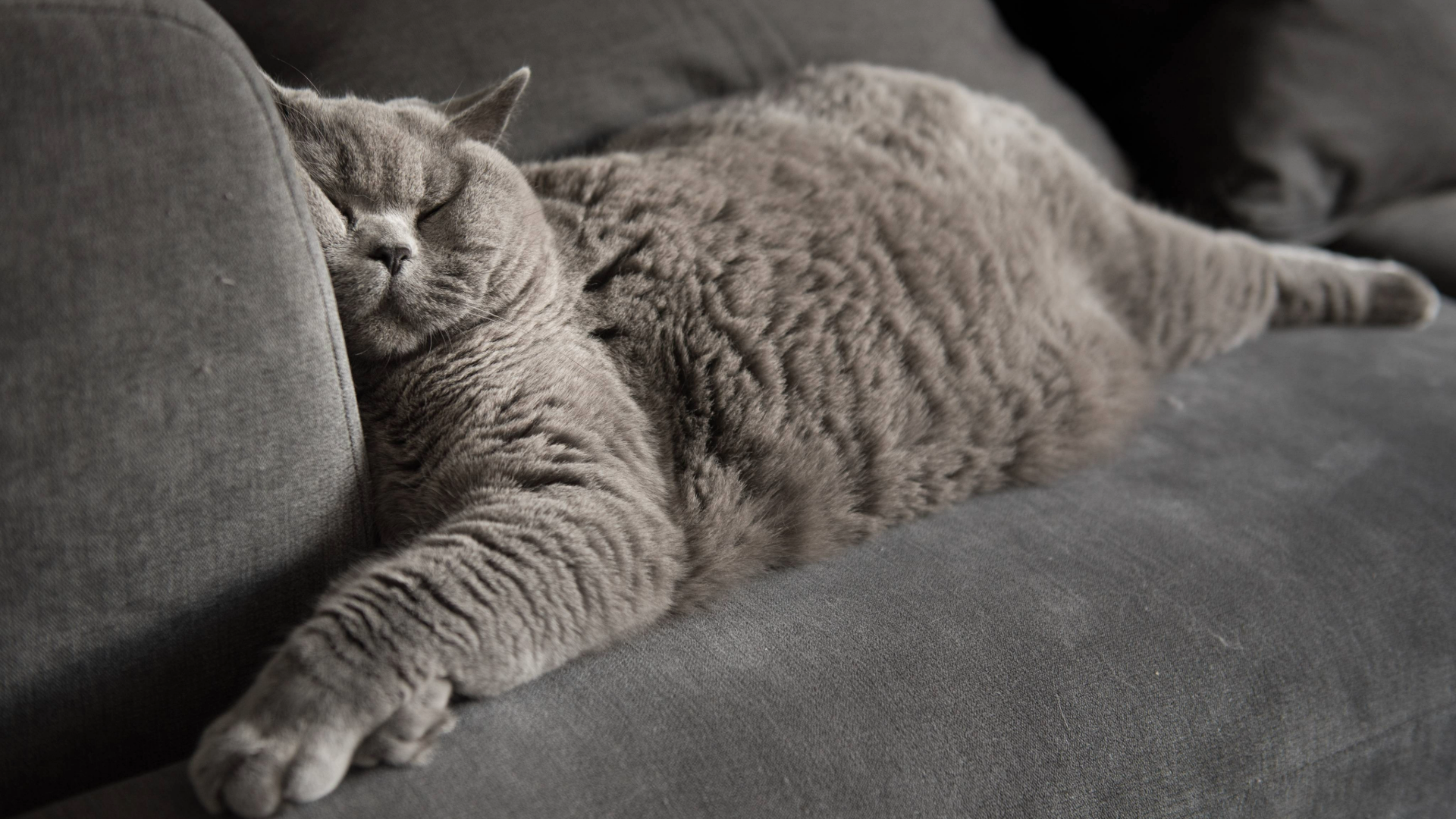
Has your cat suddenly put on weight?
Obesity is common in cats, in fact 60% of cats within the United States are overweight or obese. Much as in humans, this isn’t a good thing and can cause health complications, so it’s well worth dealing with before it becomes a problem.
The most common causes of cat obesity are excessive food intake or inadequate exercise – basically because they are eating more calories than they expend. Try putting them on a diet or encouraging them to exercise more by investing in an interactive cat toy, or slow down their feeding with an automatic pet feeder or cat puzzle toy.
That said, it’s sudden weight gains that are a bigger sign that something may be up with your four-legged friend. It may be that next door is feeding them as well as you, but it may be something more serious.
Especially if it’s coupled in a change in your kitty’s behavior like becoming lethargic and having a duller coat than usual. This can be a sign of hypothyroidism, where your cat has a hormone imbalance slowing their metabolism due to an impairment of the thyroid gland. It can also be caused by intestinal disease or diabetes.
Another common cause of sudden weight is pregnancy. If you cat isn’t spayed, then there may be a happier reason to take them to the vet – the imminent arrival of the patter of tiny paws!
If you've noticed blood in your cat's stool, this vet's guide can help. Or, read about the most common illnesses in cats

After graduating as a vet from the University of Nottingham, Dr. Joanna Woodnutt went on to practice companion animal medicine in the Midlands. She quickly developed a love of consulting and helping clients with medical problems such as dermatology, behavior and nutrition - anything that involved helping clients understand their pets better.
Edited by Georgia Guerin and Alexis de Leaver.
This page was last updated in April 2025 by Megan Milstead.
Jamie Middleton is a freelance editor and writer who has been editing and creating content for magazines and websites for over 20 years. As well as writing about the pets he loves, he has helped create websites about tech and innovation like TechRadar.com, Innovate UK and TechSPARK, written programmes for music festivals, books on inventions and architecture, TV listings magazines, and edited publications about cars such as Lexus, Toyota and Jaguar. In his spare time he writes fiction books and poetry - or at least he does when he is permitted to by his cat Pirate, who enjoys the warmth of laptops too much to allow being creative to get in the way.
- Dr Joanna Woodnutt MRCVSVet
- Megan MilsteadStaff Writer
